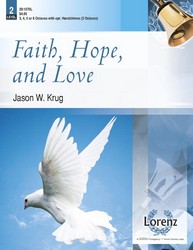- |
User Links
Faith of Our Fathers

Faith of our fathers, living still
Author: Frederick William Faber (1849)Tune: ST. CATHERINE (Hemy)
Published in 851 hymnals
Printable scores: PDF, MusicXMLPlayable presentation: Lyrics only, lyrics + musicAudio files: MIDI, Recording
Representative Text
1 *Faith of the martyrs, living still
in spite of dungeon, fire, and sword;
oh, how our hearts beat high with joy
whene’er we hear that glorious word!
Refrain:
Faith of the martyrs, holy faith,
we will be true to thee till death.
2 The martyrs chained in prison cells
were still in heart and conscience free,
and bless’d would be their children’s fate
if they, like them, should die for thee! [Refrain]
3 Faith of the martyrs, we will love
both friend and foe in all our strife,
and preach thee, too, as love knows how,
by saving word and faithful life! [Refrain]
*Alternate phrases: “Faith of our fathers” or “Faith of our mothers”
Source: Voices Together #575
Author: Frederick William Faber
 Raised in the Church of England, Frederick W. Faber (b. Calverly, Yorkshire, England, 1814; d. Kensington, London, England, 1863) came from a Huguenot and strict Calvinistic family background. He was educated at Balliol College, Oxford, and ordained in the Church of England in 1839. Influenced by the teaching of John Henry Newman, Faber followed Newman into the Roman Catholic Church in 1845 and served under Newman's supervision in the Oratory of St. Philip Neri. Because he believed that Roman Catholics should sing hymns like those written by John Newton, Charles Wesley, and William Cowpe, Faber wrote 150 hymns himself. One of his best known, "Faith of Our Fathers," originally had these words in its third stanza: "Faith of Our Fathers! Mary'… Go to person page >
Raised in the Church of England, Frederick W. Faber (b. Calverly, Yorkshire, England, 1814; d. Kensington, London, England, 1863) came from a Huguenot and strict Calvinistic family background. He was educated at Balliol College, Oxford, and ordained in the Church of England in 1839. Influenced by the teaching of John Henry Newman, Faber followed Newman into the Roman Catholic Church in 1845 and served under Newman's supervision in the Oratory of St. Philip Neri. Because he believed that Roman Catholics should sing hymns like those written by John Newton, Charles Wesley, and William Cowpe, Faber wrote 150 hymns himself. One of his best known, "Faith of Our Fathers," originally had these words in its third stanza: "Faith of Our Fathers! Mary'… Go to person page >Text Information
Related Texts
| First Line: | Faith of our fathers, living still |
| Title: | Faith of Our Fathers |
| Author: | Frederick William Faber (1849) |
| Meter: | 8.8.8.8.8.8 |
| Language: | English |
| Notes: | Spanish translation: See "Omnipotente Padre Dios; Swahili translation: See "Neno la mungu takata" |
| Copyright: | Public Domain |
- Year A, Holy Week season, Wednesday of Holy Week
- Year B, Lent, Second Sunday
- Year B, Ordinary Time, Proper 9 (14)
- Year B, Ordinary Time, Proper 10 (15)
This is recommended for Year B, Ordinary Time, Proper 10 (15) by 2 hymnal lectionary indexes. - Year B, Ordinary Time, Proper 16 (21)
This is recommended for Year B, Ordinary Time, Proper 16 (21) by 2 hymnal lectionary indexes. - Year C, Holy Week season, Wednesday of Holy Week
- Year C, Ordinary Time, Proper 14 (19)
This is recommended for Year C, Ordinary Time, Proper 14 (19) by 2 hymnal lectionary indexes. - Year C, Ordinary Time, Proper 14 (19)
- Year C, Ordinary Time, Proper 15 (20)
This is recommended for Year C, Ordinary Time, Proper 15 (20) by 2 hymnal lectionary indexes.
Engish
English
- 112 Familiar Hymns and Gospel Songs #70
- 20th Century Gospel Songs: Youthspiration Packet Hymnal #17
- A Calendar of Hymns #d14
- A Hymnal for Friends #124
- A Hymnal for Joyous Youth: An all-purpose hymnal for church, young peoples' services and Sunday schools #263
- A Hymnal for Joyous Youth: An all-purpose hymnal for church, young peoples' services and Sunday schools #144
- A Junior's Praise #36
- A Messenger for Jesus #d54
- A School Service Book #d33
- A Service Hymn Book #d28 10 shown out of 637
German
Latin
Welsh
- Cân a Mawl: llyfr hymna a thonau Methodistiaid Calfinaidd Unol Dalaethau yr America=Song and Praise: the hymnal of the Calvinistic Methodist Church of the United States of America #231
- Mawl a chân = praise and song : llyfr hymnau a thonau i Gymru ar Wasgar = hymnal for Welsh and English church worship / crynhoad pwyllgor Eglwys Gymraeg, Detroit, Michigan #262
- Old and New Welsh and English Hymns #37
Faith of our fathers! living still. F. W. Faber. [A Pledge of Faithfulness.] This hymn appeared as the first of two hymns, one “Faith of our Fathers," for England; and the second the same for Ireland, in his Jesus and Mary; or, Catholic Hymns for Singing and Reading, 1849, in 4 stanzas of 6 lines. It was repeated in his Oratory Hymns, and several Roman Catholic collections for missions and schools. Its use illustrates most forcibly how in hymnody, as in other things, "extremes meet." In the original stanza iii., lines 1, 2, read:—
"Faith of our Fathers! Mary's prayers
Shall win our country back to thee."
In 1853 Drs. Hedge & Huntington altered these lines to:—
"Faith of our Fathers! Good men's prayers
Shall win our country all to thee."
for their Unitarian Hymns for the Church of Christ, No. 455. With this alteration it has passed into several Nonconformist collections in Great Britain and America. With the alteration of these few words the hymn is regularly sung by Unitarians on the one hand, and by Roman Catholics on the other, as a metrical embodiment of their history and aspirations.
--John Julian, Dictionary of Hymnology (1907)
Notes
Faith of our fathers! living still. F. W. Faber. [A Pledge of Faithfulness.] This hymn appeared as the first of two hymns, one “Faith of our Fathers," for England; and the second the same for Ireland, in his Jesus and Mary; or, Catholic Hymns for Singing and Reading, 1849, in 4 stanzas of 6 lines. It was repeated in his Oratory Hymns, and several Roman Catholic collections for missions and schools. Its use illustrates most forcibly how in hymnody, as in other things, "extremes meet." In the original stanza iii., lines 1, 2, read:—
"Faith of our Fathers! Mary's prayers
Shall win our country back to thee."
In 1853 Drs. Hedge & Huntington altered these lines to:—
"Faith of our Fathers! Good men's prayers
Shall win our country all to thee."
for their Unitarian Hymns for the Church of Christ, No. 455. With this alteration it has passed into several Nonconformist collections in Great Britain and America. With the alteration of these few words the hymn is regularly sung by Unitarians on the one hand, and by Roman Catholics on the other, as a metrical embodiment of their history and aspirations.
--John Julian, Dictionary of Hymnology (1907)
Timeline
Arrangements
Media
Small Church Music #6617
- PDF Score (PDF)
Timeless Truths #315
- Faith_of_Our_Fathers.pdf (PDF)
The United Methodist Hymnal #710
- MIDI file from Baptist Hymnal 1991 #352
- MIDI file from Baptist Hymnal 1991 #352
- Audio recording from Baptist Hymnal 2008 #594
- MIDI file from The Cyber Hymnal #1416
- Audio recording from Evangelical Lutheran Worship #812
- Audio recording from Small Church Music #69
- Audio recording from Small Church Music #69
- Audio recording from Small Church Music #6617
- Audio recording from Trinity Hymnal (Rev. ed.) #570
- MIDI file from Timeless Truths #315
- Audio recording from The Worshiping Church #692
- MIDI file from The United Methodist Hymnal #710
- Audio recording from The United Methodist Hymnal #710
- Audio recording from Worship and Rejoice #530
- MIDI file from Worship and Rejoice #530


 My Starred Hymns
My Starred Hymns






